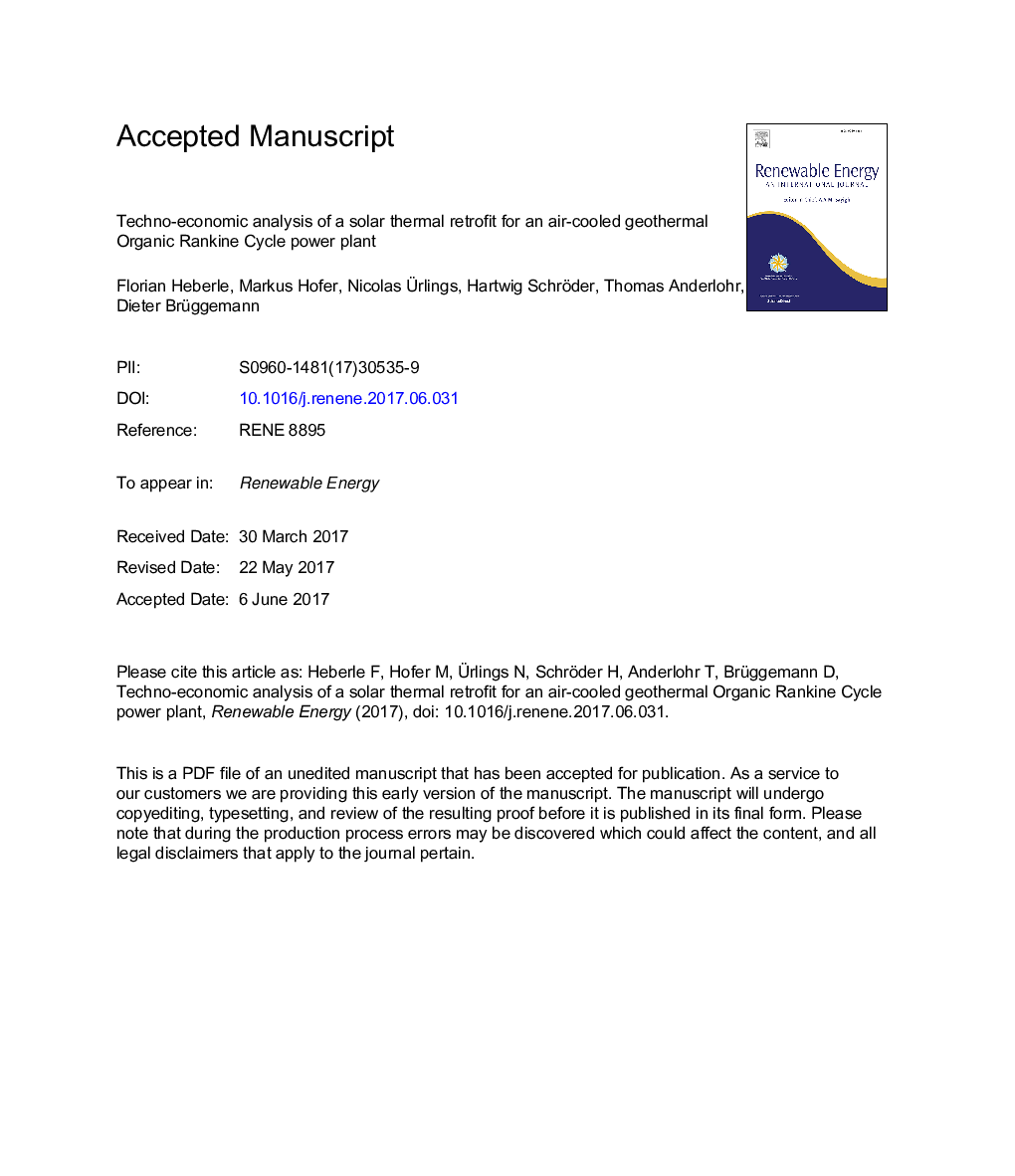| Article ID | Journal | Published Year | Pages | File Type |
|---|---|---|---|---|
| 4926047 | Renewable Energy | 2017 | 35 Pages |
Abstract
High ambient temperatures are often coupled with high levels of solar irradiation and lead to a significant reduction of the power output of air-cooled geothermal Organic Rankine Cycle (ORC) power plants. Consequently, hybridisation based on solar thermal power is promising. In this work, a solar thermal retrofit based on superheating of the ORC working fluid is analysed under technical and economic criteria considering typical conditions in Turkey. The conducted off-design simulations prove that the isentropic efficiency of the turbine has a major impact on the performance of the entire system. The solar field size and the corresponding degree of superheating is limited in the respect to the built-in components. Therefore, the thermal stability of the examined ORC working fluid is sufficient and a low-temperature parabolic trough field with water as heat transfer fluid can be realized. For the retrofit, detailed simulations over the period of one year show up to 7.8% more electricity, a solar-to-electric efficiency of 10% and a significant power gain during summer. Besides, an increased reinjection temperature could lead to an improved management of the geothermal reservoir. Economically, the medium sized solar field is related to the lowest levelised costs of electricity (LCOE) with 145 $/MWh.
Related Topics
Physical Sciences and Engineering
Energy
Renewable Energy, Sustainability and the Environment
Authors
Florian Heberle, Markus Hofer, Nicolas Ãrlings, Hartwig Schröder, Thomas Anderlohr, Dieter Brüggemann,
